Lidl Ireland’s CEO, JP Scally, says its strategy is to provide value for money to its customers at the best price possible. “This means giving a fair price to everyone in the supply chain,” according to the son of a Westmeath farmer.
In a wide-ranging interview with the Irish Farmers Journal at the opening of a €100m distribution warehouse in Newbridge, Co Kildare, he said: “As a privately owned family business, we don’t have profit targets to hit so we are able to invest back into the business.”
Lidl is not interested in a race to the bottom on price but that the company is committed to being the cheapest in the market on price
He added that Lidl does not take excessive value out of the supply chain and it is their aim to grow relationships with suppliers over the long term.
In this way, he says it ensures farmers and suppliers can get efficiencies into their businesses and can pass them on to Lidl, which are in turn passed on to customers in the form of cheaper prices.
He asserts that Lidl is not interested in a race to the bottom on price but that the company is committed to being the cheapest in the market on price.
However, he adds that “where there are particular products sold elsewhere below cost, we will follow to ensure we are not beaten on price”.
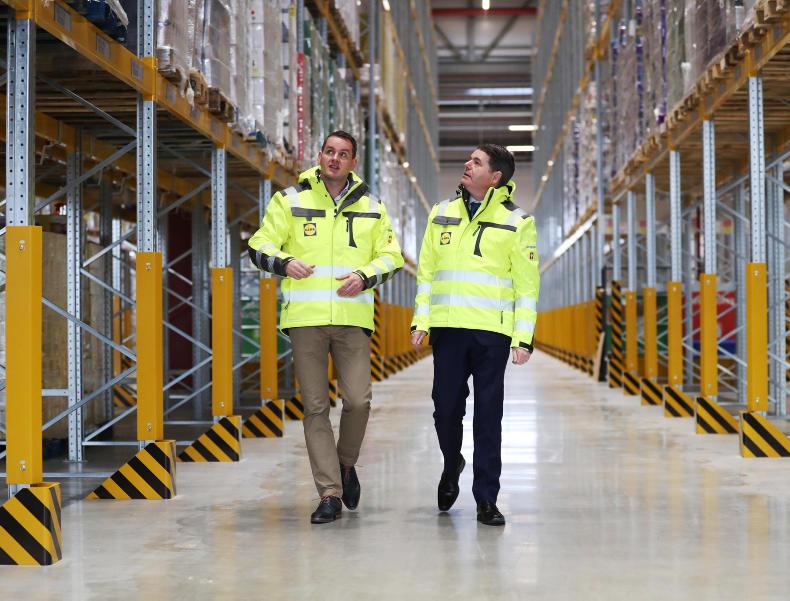
JP Scally, CEO, Lidl Ireland, shows Paschal Donohoe, Minister for Finance, Public Expenditure and Reform, the new €100m distribution centre in Newbridge, Co Kildare.
This low-price model has certainly reaped benefits for Lidl over the last 20 years since it first arrived in Ireland in 2000.
It now has 162 stores in the country with ambitions to open another 50 in the coming years. More than 1.5m customers shop in its stores every week.
Lidl sources €1bn of produce from 225 Irish suppliers including companies such as Liffey Meats and Meade Potatoes
It has almost 12% of the Irish grocery market in terms of value, according to Kantar and has gained much more ground on its competitors in terms of volume at around 17% market share.
Lidl sources €1bn of produce from 225 Irish suppliers including companies such as Liffey Meats and Meade Potatoes.
We don’t ask for hello money or money for specific placements
Scally says that Lidl offers suppliers an opportunity to grow and it exports €300m of Irish food and drink to 26 countries.
He says the company has a code of conduct to deal with suppliers and that it is only interested in the long term, fairness and transparency.
“We don’t ask for hello money or money for specific placements,” according to Scally.
Trends
While Scally says the German-owned grocer is seeing a huge interest in vegan products such as vegetable burgers and sausages, it is also seeing an increase in sales of beef and other meat products at the same time.
He says that 100% of all meat is Irish-sourced and Bord Bia-approved.
“Farmers are critical to our business and if it wasn’t for the quality of Irish produce we wouldn’t be able to sell to our customers,” he adds.
They grocer is seeing significant growth in freshly baked products and chilled convenience products such as wraps and salads.
He is seeing an increase in the liquid milk category also – despite introducing almond products more recently into this aisle
He also adds anything that relates to healthy eating, such as nuts or protein bars, is also doing well.
He is seeing an increase in the liquid milk category also – despite introducing almond products more recently into this aisle.
The €100m investment in Newbridge covers 14 acres – making it the second largest industrial building in Ireland. It is 0.5km long and can store 49m products. It has the largest solar instalment in the country on its roof – around two acres of solar panels.
Lidl Ireland’s CEO, JP Scally, says its strategy is to provide value for money to its customers at the best price possible. “This means giving a fair price to everyone in the supply chain,” according to the son of a Westmeath farmer.
In a wide-ranging interview with the Irish Farmers Journal at the opening of a €100m distribution warehouse in Newbridge, Co Kildare, he said: “As a privately owned family business, we don’t have profit targets to hit so we are able to invest back into the business.”
Lidl is not interested in a race to the bottom on price but that the company is committed to being the cheapest in the market on price
He added that Lidl does not take excessive value out of the supply chain and it is their aim to grow relationships with suppliers over the long term.
In this way, he says it ensures farmers and suppliers can get efficiencies into their businesses and can pass them on to Lidl, which are in turn passed on to customers in the form of cheaper prices.
He asserts that Lidl is not interested in a race to the bottom on price but that the company is committed to being the cheapest in the market on price.
However, he adds that “where there are particular products sold elsewhere below cost, we will follow to ensure we are not beaten on price”.

JP Scally, CEO, Lidl Ireland, shows Paschal Donohoe, Minister for Finance, Public Expenditure and Reform, the new €100m distribution centre in Newbridge, Co Kildare.
This low-price model has certainly reaped benefits for Lidl over the last 20 years since it first arrived in Ireland in 2000.
It now has 162 stores in the country with ambitions to open another 50 in the coming years. More than 1.5m customers shop in its stores every week.
Lidl sources €1bn of produce from 225 Irish suppliers including companies such as Liffey Meats and Meade Potatoes
It has almost 12% of the Irish grocery market in terms of value, according to Kantar and has gained much more ground on its competitors in terms of volume at around 17% market share.
Lidl sources €1bn of produce from 225 Irish suppliers including companies such as Liffey Meats and Meade Potatoes.
We don’t ask for hello money or money for specific placements
Scally says that Lidl offers suppliers an opportunity to grow and it exports €300m of Irish food and drink to 26 countries.
He says the company has a code of conduct to deal with suppliers and that it is only interested in the long term, fairness and transparency.
“We don’t ask for hello money or money for specific placements,” according to Scally.
Trends
While Scally says the German-owned grocer is seeing a huge interest in vegan products such as vegetable burgers and sausages, it is also seeing an increase in sales of beef and other meat products at the same time.
He says that 100% of all meat is Irish-sourced and Bord Bia-approved.
“Farmers are critical to our business and if it wasn’t for the quality of Irish produce we wouldn’t be able to sell to our customers,” he adds.
They grocer is seeing significant growth in freshly baked products and chilled convenience products such as wraps and salads.
He is seeing an increase in the liquid milk category also – despite introducing almond products more recently into this aisle
He also adds anything that relates to healthy eating, such as nuts or protein bars, is also doing well.
He is seeing an increase in the liquid milk category also – despite introducing almond products more recently into this aisle.
The €100m investment in Newbridge covers 14 acres – making it the second largest industrial building in Ireland. It is 0.5km long and can store 49m products. It has the largest solar instalment in the country on its roof – around two acres of solar panels.




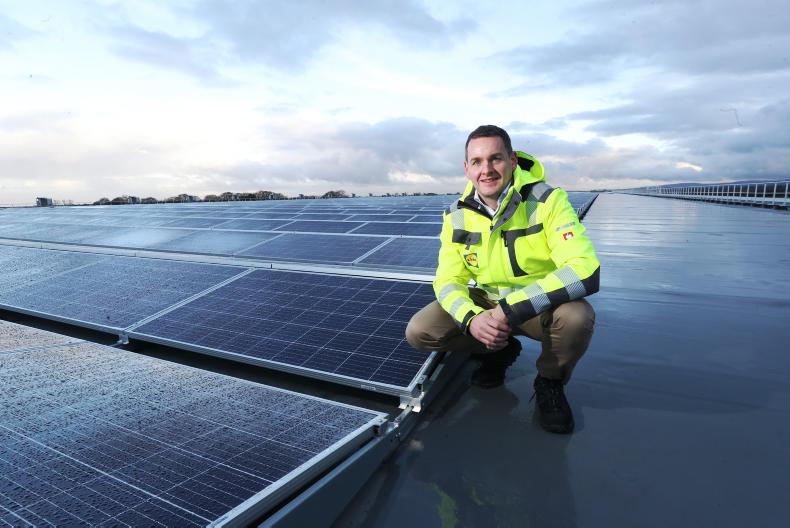
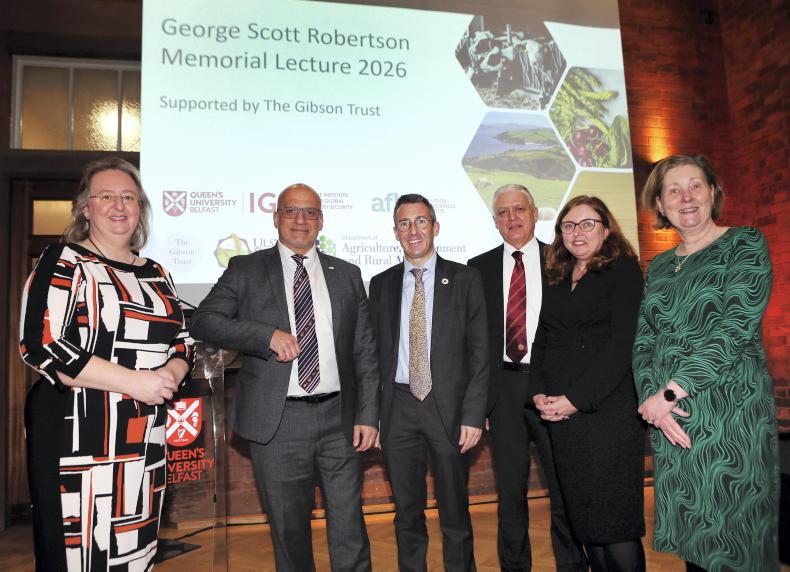

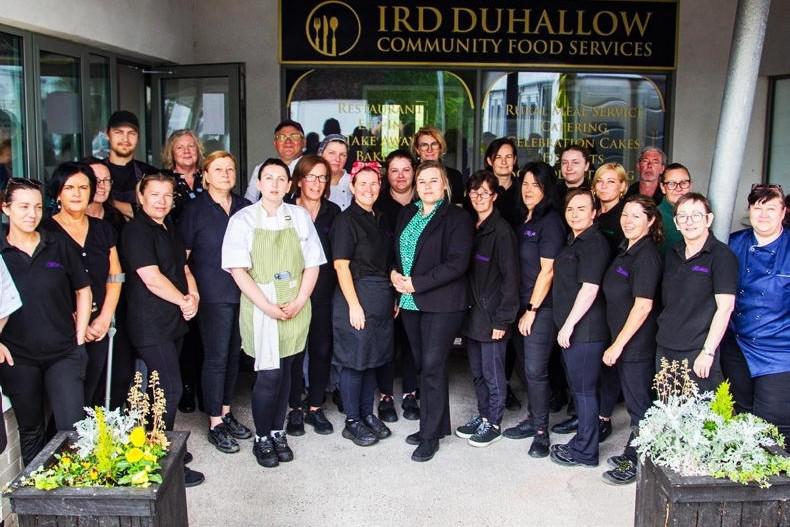
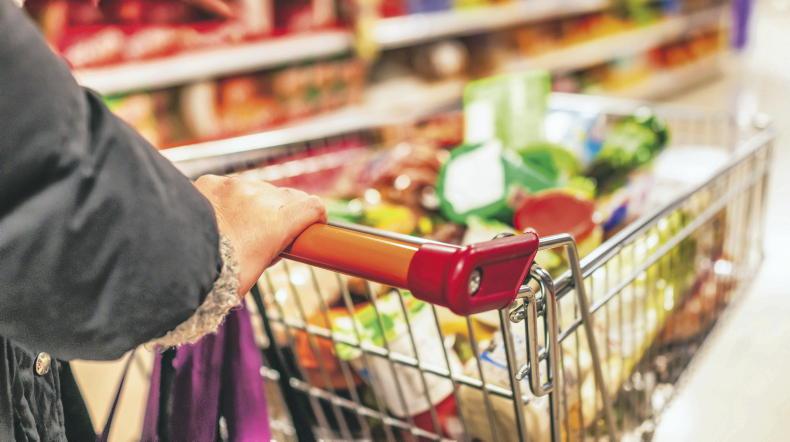
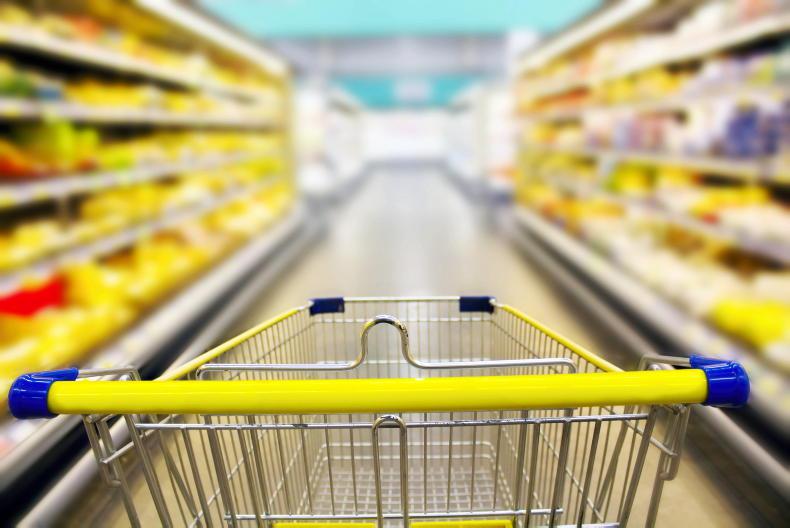
SHARING OPTIONS